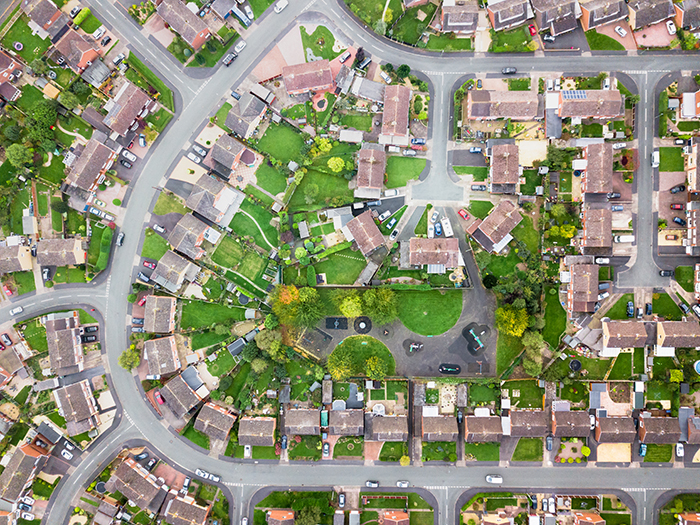
Average house prices fell by 4.6% in August, compared to a year ago, the biggest annual fall since 2009, data from Halifax shows, as “higher mortgage costs flow through to house prices”.
On a monthly basis, prices were down by 1.9% last month, to £279,569, marking the fifth consecutive monthly decline and the largest monthly fall since last November, according to the lender’s latest House Price Index.
Home prices are down by around £14,000 compared to a year ago, and back to the level seen at the start of last year.
However, the average prices are £40,000, or 17%, above pre-pandemic levels, the report points out.
Across the country, it says: “Buyers faced with the need to find larger deposits and fund bigger monthly repayments means the South East is experiencing the biggest drop. House prices have fallen by 5% on an annual basis,” to £379,565.
This was followed by Wales, which posted some of the biggest gains in property prices during the pandemic-driven ‘race for space’, has seen property prices fall by 4.7% over the last year, to £212,967.
Scotland is the most resilient market in the UK, with property prices slipping by just 0.6% over the last year to £201,932.
Key two- and five-year home loan rates have jumped to over 6% from sub-2% prices seen some two years ago, as the Bank of England as hiked the base rate to tackle inflation.
The average two-year fixed-rate residential mortgage rate is 6.67 today, unchanged from yesterday, data from Moneyfacts shows.
The average five-year buy-to-let mortgage rate is 6.16% today, a single basis point lower from the previous day.
Halifax Mortgages director Kim Kinnaird says: “It’s fair to say that house prices have proven more resilient than expected so far this year, despite higher interest rates weighing on buyer demand.
“However, there is always a lag-effect where rate increases are concerned, and we may now be seeing a greater impact from higher mortgage costs flowing through to house prices.
Kinnaird adds: “We do expect further downward pressure on property prices through to the end of this year and into next, in line with previous forecasts.”
House Buyer Bureau managing director Chris Hodgkinson says: “Buyer indecision continues to dampen market sentiment, with the majority still unwilling to borrow the sums required to satisfy seller expectations.
“As a result, property values have continued to level out as predicted and this will remain the case until a middle ground is reached.
“For sellers, this means a further adjustment where their asking price expectations are concerned if they want to secure a buyer. However, the required adjustment is marginal in comparison to the house price increase they will have enjoyed over the last few years.”
Hargreaves Lansdown head of personal finance Sarah Coles points out: “Higher mortgages have an immediate impact on buyers, and while they have inched down from the peak, rates aren’t going anywhere in a hurry.
“It’s not just the buyers we have to worry about either. There’s also the insidious creep of remortgages as people come to the end of the fixed-rate deal.
“The Resolution Foundation showed the average mortgage rate held at the start of 2022 was 2%, and is expected to peak at 4.8% at the end of 2027, but only half of that has filtered through into mortgages so far. It means house price weakness could have a long tail.”
Bestinvest personal finance analyst Alice Haine adds: “With the drag on house buying activity from higher interest rates expected to continue from here, property prices are unlikely to recover in the short term.
“With income growth high, this could offer some relief for first-time buyers looking to get on the property ladder. However, a falling market can also put more homeowners at risk of falling into negative equity where the value of the home is less than the mortgage attached to the property.
“Such a scenario causes added complications for homeowners looking to sell as they must cover the shortfall between the sale price and the mortgage balance, while those refinancing may struggle to move to a new mortgage product when their existing deal ends.”



